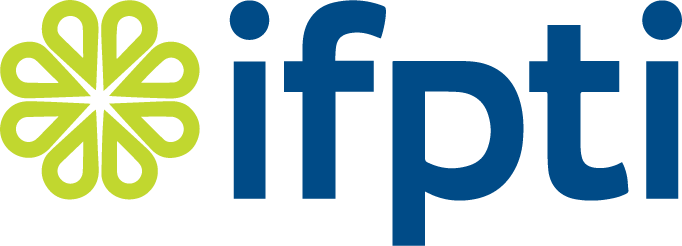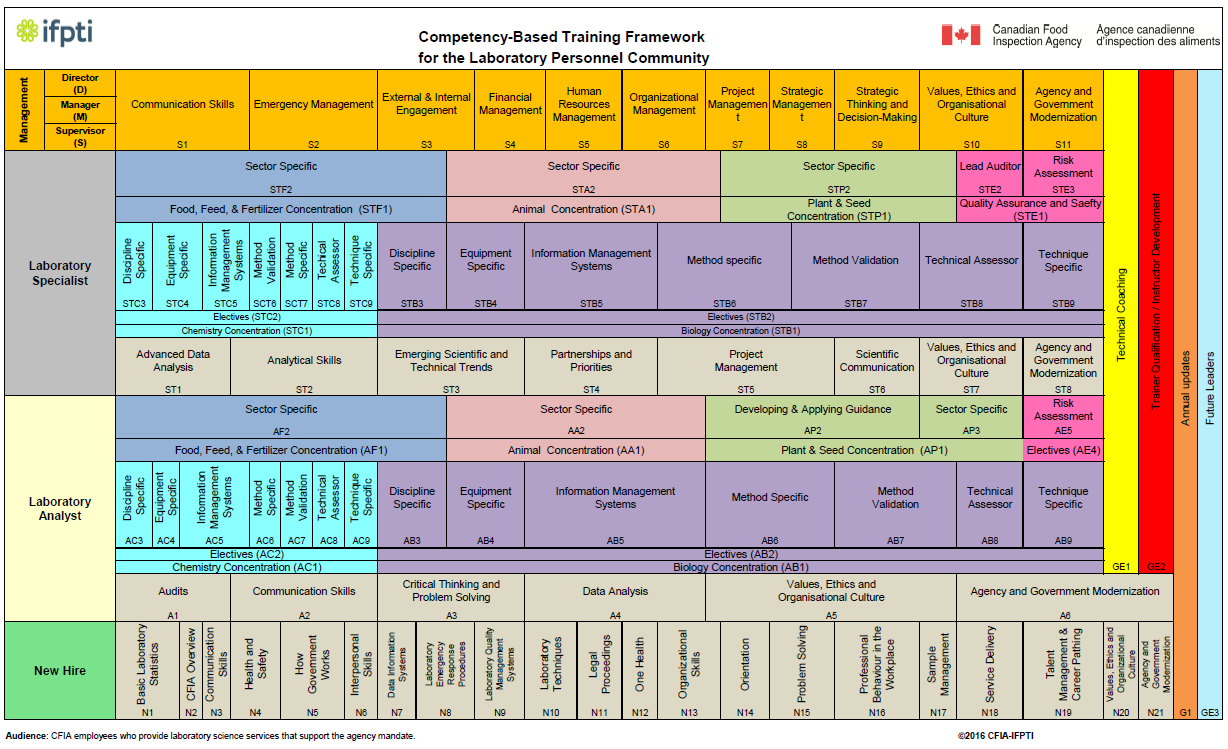Curriculum Standards
Competency-based learning systems focus on front-end analysis to determine the desired knowledge, skills, abilities, and behaviors necessary for high-level job performance. Such systems emphasize the use of assessments to determine the level of competence against desired outcomes, and focus learning and developmental efforts on helping the individual determine a learning path, identifying the learning experiences that help the individual attain the desired competencies.
The instructional design methodology known as ADDIE (analysis, design, development, implementation, and evaluation), coupled with stakeholder input, learning experience review, and support systems make the system robust, efficient, and effective.
Through the development of curriculum standards, IFPTI provides a unique vision and roadmap for an integrated, open-source, career-spanning learning system that can be utilized by any organization. Originally devised to provide a truly integrated food safety system (IFSS) to afford the workforce at all levels of government high-quality training, the system is used to propel leaders and employees alike to new levels of performance.
The application of the IFPTI learning system extends to academia, public- and private-sectors, and can benefit a range of food-related professions within public health worldwide.
A curriculum standard provides multiple benefits:
Helps create career improvement paths;
Acts as an open-source cataloging system for learning experiences related to a particular profession;
Assures that members of a profession are trained consistently and systematically; and
Encourages greater collaboration among profession stakeholders.




